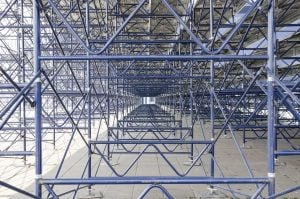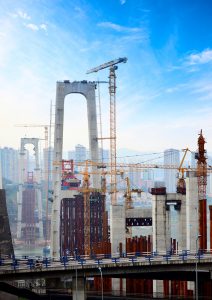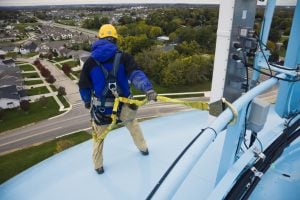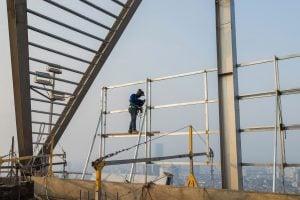What does this have to do with temporary structures such as scaffolding, aerial lifts, shoring and formwork? Plenty since the decision by one can have a devastating life threatening effect on others. I’m not being cynical or arrogant; plenty of opportunities lie ahead for me and you as we go about our daily lives. Some of us will learn from these opportunities while some unfortunately will waste the chance to broaden their horizons and deepen their knowledge. They will blow the chance to develop their common sense. There is a saying that goes something like this: Where does good judgment come from? Well, it comes from experience. Where does experience come from? Well, that comes from bad judgment!
If you are the clerk at the local convenience store, chances are that your bad judgment, perhaps based on a lack of common sense, will not cause the death of a customer. However, if you are a scaffold erector your decisions may result in another’s death. This is serious. Frankly, common sense drives many activities in the access and construction industry. Daily decisions are made based on common sense, as they well should. However, there is a fine line between common sense, based on “sound practical judgment,” and irresponsible actions that are just plain unjustifiable. For example, why would a job superintendent not follow the shoring design prepared by a Professional Engineer? Why would a scaffold erector not follow the qualified person’s scaffold plan? Why would a carpenter choose a different formwork member although he has no “specialized knowledge or training” that would enable him to make the correct choice?
This common sense issue goes beyond engineering and construction. Jobsite safety on many projects is held hostage to the phenomenon of poor common sense. Where is the common sense when an employee must utilize personal fall protection while standing behind a properly constructed scaffold guardrail system? Where is the common sense when it doesn’t matter what the user chooses as an anchor so long as she is “tied off?” Common sense has obviously left the jobsite when the safety inspector ignores the advice of a qualified person and instead follows her own ill informed opinion of what is safe. And certainly common sense never arrived at the jobsite when a signed piece of paper magically becomes the critical issue and not the practiced safety it is suppose to imply.
It seems common sense is no longer common. In fact, the situation has morphed into a weird perverse alternate world where qualified workers are no longer allowed to make decisions yet the unqualified worker is allowed to act irresponsibly with no risk of having to accept the responsibility of his actions. Why is it that a worker can modify a scaffold or incorrectly construct shoring without risking the consequences while those who have made the effort to understand the details of the activity are so severely punished, not because of their actions, but only because of their knowledge? How can a shoring equipment supplier be held responsible for the customer’s superintendent’s poor decision when that superintendent didn’t even bother to learn how to use the equipment or even ask for help, help that is free for the asking? Incredible. And yet, those who lack common sense escape the wrath of the attorneys, OSHA and others because they can claim ignorance while those who do have the knowledge and expertise are held under the scrutiny of the legal microscope.
What is the solution? It’s easy. Common sense will tell you that you shouldn’t be involved with work activities that exceed your expertise. The Code of Ethics for Professional Engineers requires that Professional Engineers practice only in their area of expertise. Other professions have similar tenets in their codes. Punishment for a breach can be severe. Why not do the same for the Construction Industry? Make the employee individually responsible for his actions. You don’t comply with the OSHA Standards? You get fined. (Of course, if the employer is misbehaving, she should get fined too.) You make changes to the shoring layout, you are responsible; not the employer, not the designer, not the supplier, you.
Finally, my experience indicates that common sense disappears and intimidation replaces it. In fact, intimidation, not common sense or knowledge, plays a huge role in the decision making process. Safety inspectors can have incredible power over contractors and subcontractors. Challenging a safety inspector’s incorrect requirement on a jobsite often results in the threat of continued harassment leading to trumped up accusations and stipulations that at a minimum wastes money and ultimately never increases safety. Why, for example, would a safety inspector insist that a wall form scaffold bracket that has been safely used for over 50 years all of a sudden be dangerous? Why would this same individual not trust the information that is offered to bolster the facts? Why would the inspector not rely on the statements of numerous qualified individuals or the expertise of the professional consultants? To me it is almost unbelievable that we have allowed individuals who lack any knowledge, or common sense, to dictate the actions of others. I can only say it must be the lack of common sense. Idle requirements without substantiation must stop. Poor work habits that result in dangerous and fatal accidents must be stopped. Common sense will tell you that.













